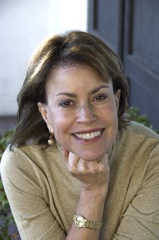When I began working in this field many years ago, I was told that if I hadn’t already picked a specialization, it would pick me. And that is exactly what happened.
I worked in a non-profit clinic where we had big caseloads, having to see many more people each week than one would ordinarily see in private practice. Within weeks I realized that a significant number of the people I met with had been abused as children. When I probed deeper with other clients, more of them revealed they had been abused – if not sexually, than emotionally or physically. I was drawn to these people. They felt like kindred spirits, because I too had come from an abusive past. And so, it became a logical decision to follow this path, and to make childhood abuse a specialized focus of my practice.
None of us come from perfect backgrounds. And children adapt to their circumstances – no matter how brutal. The difference is, that children who adapt to abuse, have to turn inward and create their own reality in order to survive. And that reality emotionally separates them from the world as they grow up. Children in abusive environments are like houseplants that bend towards windows with light. They reach out for sustenance and lose their natural shape. Children who don’t feel safe tend to deny their own needs and desires in order to please those around them. They turn their anger inward. They feel that they must be doing something bad or wrong, because to think that its not them, that it is the adults around them doing something bad, is just too frightening to imagine.
So these children bend, like those sun starved plants. And they grow up believing that they are bad – different – something is inherently wrong with them. At the same time, they are not taught healthy interactive behaviors or tools to use in society. So when they go out in the world, not only do they have trouble engaging in relationships, but when they do, they are apt to repeat the unhealthy behaviors that they were taught. If your primary role models in life were unhealthy adults, then how are you supposed to grow up and suddenly become a healthy adult yourself? You may have been born with good instincts. But you were forced not to listen to those instincts and just do whatever you had to do to survive.
That is where psychotherapy comes in. Therapy provides a safe place to explore the past and the present. To take a clear look at our lives and figure out how we can make it better, make ourselves happier. If we don’t feel this way when we walk in the door, we do come to discover that we can no longer blame others for our inner turmoil. Yes people have hurt us– and adults who have survived childhood abuse, have been hurt and betrayed in the worst possible way. But we can’t change the past. And we can’t change others.
Human beings are meant to grow and change. Being stuck is not a natural instinct. Therapy helps us to gain a perspective on how we behave, where those behaviors originated, and how they are hurting or hindering us now. People usually don’t enter therapy unless they have run through all of their other coping devices. Their back is against a wall, and there is nowhere left to go but to change from within. Addictions no longer work. And by addictions, I don't just mean substance abuse, but any behavior that is repetitive and feels shameful or secret. Whether it is sex, food, spending money, self-abusing or abusing others, it is a coping devise, and it is addictive.
Trust is a huge issue with survivors of childhood abuse. And it is a central aspect of the work that I do with my clients. I take this issue very seriously. We work, first and foremost, to build a trusting, safe relationship. That alone is curative. We also identify emotional and external goals. And we explore their life – past and present – to make them conscious of what they do. To consider what has worked and what hasn't worked, in order to nurture inner resilience. Most importantly, to allow self-love, which may have eluded them in the past, to come to light now.
We must never lose our belief in the possibility of change. In the end, that is all we have.
Roni Weisberg-Ross LMFT






